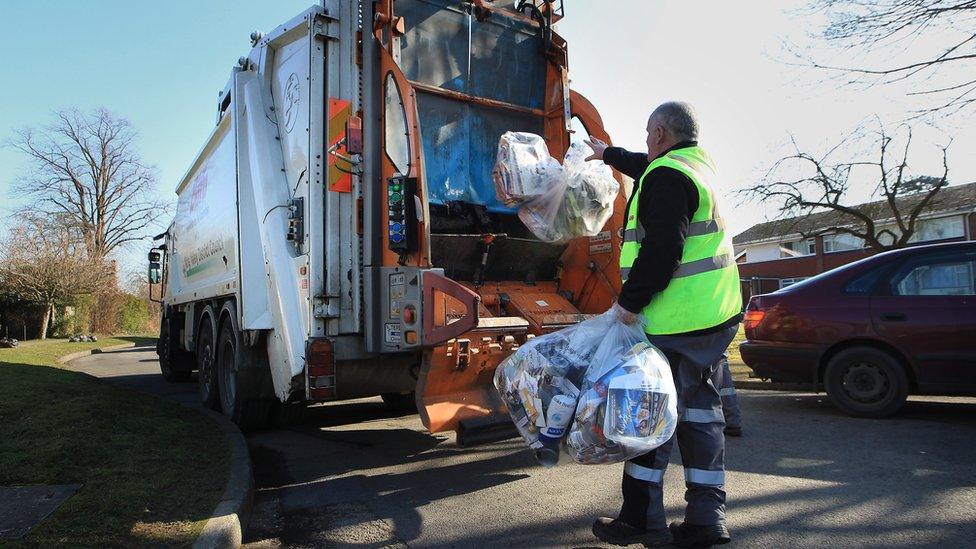Should manufacturers have to pay more recycling costs?
- Published
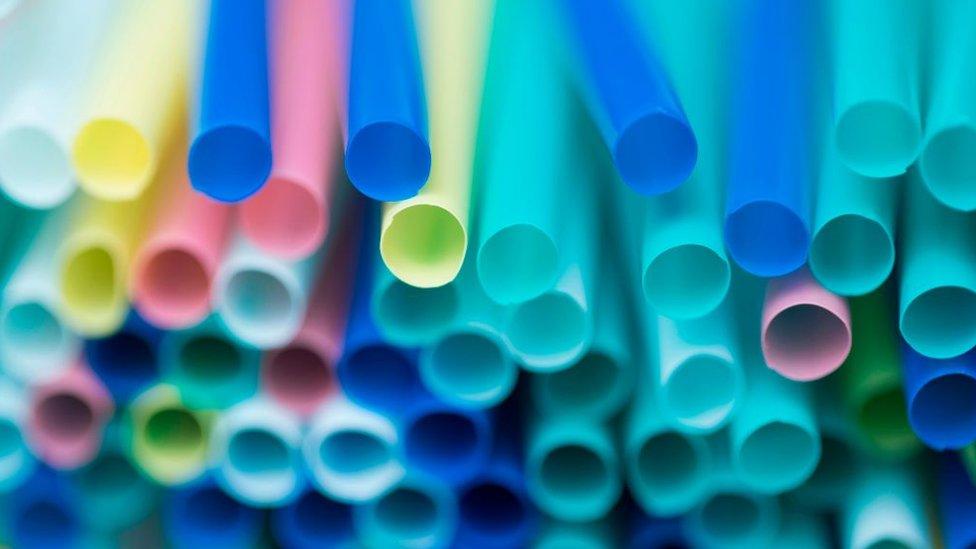
The government's long-awaited resource and waste strategy is due to be published in the next few weeks, and is expected to force manufacturers, retailers and supermarkets to pay significantly more towards recycling their waste.
Environment Secretary Michael Gove has had a few distractions lately, but he is being encouraged by industry to stay focused on the question of waste, and push forward with a significant new strategy.
According to reports, one of the key elements of the plan will be to put far greater emphasis on making manufacturers pay for the recycling of their own waste packaging.
Across the UK in 2017, around 11 million tonnes of packaging waste was produced with around 64% recycled. But half of the material that's classified as recycled is in fact exported, according to a report, external from the National Audit Office.
When it comes to purely plastic packaging the situation is even worse, with two-thirds of this now exported. Most of this used to go to China, with 40% of the plastic packaging going there in the first quarter of 2017.
But restrictions brought in at the start of this year have reduced the proportion of UK exports going to China to only 3% in the first quarter of 2018, with Malaysia, Turkey and Poland taking much of the rest.
There are concerns, however, that some of this plastic is going into landfill.
Paying the price
There are also worries over how much manufacturers are paying towards the costs of the recycling and reusing their materials.
Currently, producers are required to pay a proportion of the cost of the recovery and recycling of their packaging, which generates around £70m per annum.
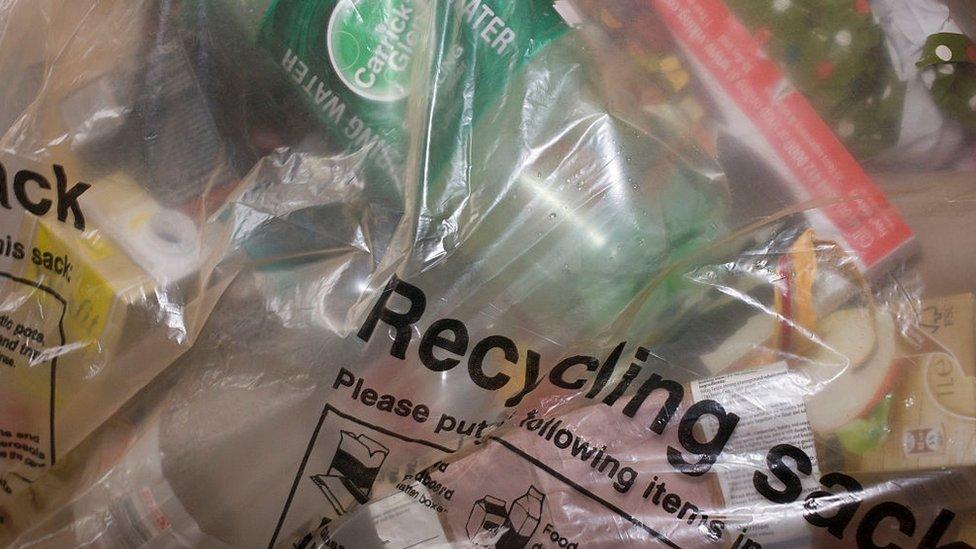
However, the National Audit Office (NAO) estimates the costs to local authorities of tackling packaging waste is around 10 times that figure, at £700m.
The NAO is also worried about the risks of fraud in the current system.
Now, according to sources quoted by the Guardian, the government is set to increase the contribution of packaging producers and retailers to between £500m and £1bn.
"One of the problems at the moment is that there isn't really any pricing mechanism that reflects the lifecycle environmental impacts of products," said Nick Molho from the Aldersgate group, which campaigns for a competitive and environmentally sustainable economy.
"It's all about the up-front costs. This [plan] would, to an extent, help to address this."
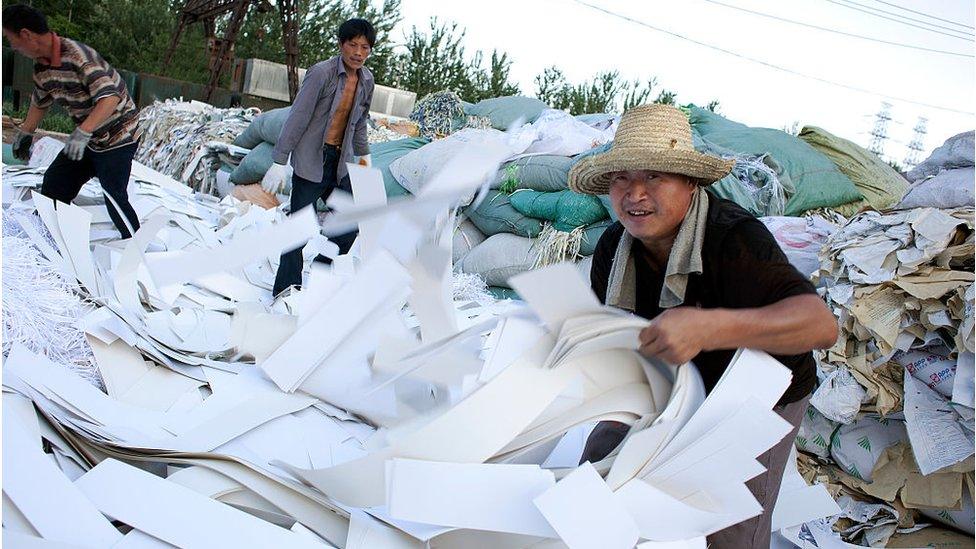
China has stopped imports of plastic waste, causing problems for the UK and other exporters
Mr Molho argues that if packaging is more resource-efficient, and cheaper to dispose of at the end of its life, then producers will pay less towards disposal. If it contains a high proportion of virgin raw materials and is less recyclable, then they will pay more.
Part of what's driving this approach is what's termed the EU circular economy package, external.
This was signed off by the European Commission earlier this year, and will apply from 2019.
Key points include creating markets for reusable or secondary materials that people can trust, and it also requires retailers to cover the net cost of household recycling collections by local authorities. The expectation is the UK waste strategy will essentially enshrine this idea in domestic law.
Others in the industry agree that a push to make producers pay more is now highly likely.
"I would be surprised if there isn't something in the strategy [about this]," said Gudrun Cartwright, from Business in the Community.
"What our members would like to see is that whatever comes out incentivises positive behaviour rather than hammering bad behaviour," she said.
As an example, she pointed to the recent Budget where the government announced that from April 2022, it will introduce a tax on all packaging that doesn't include at least 30% recycled material.
Who pays the piper?
One concern over the shift to make producers pay more is that the costs would simply be passed on to the consumer.
"If you look at the success of the plastic bag charge - that has worked really well," said Ms Cartwright.
"It is one of those circular things, but where in the system do these charges get applied? That's at the heart of the challenge."
Many in the field believe that the forthcoming strategy is a once-in-a-lifetime opportunity to change several other aspects of how the UK deals with waste.
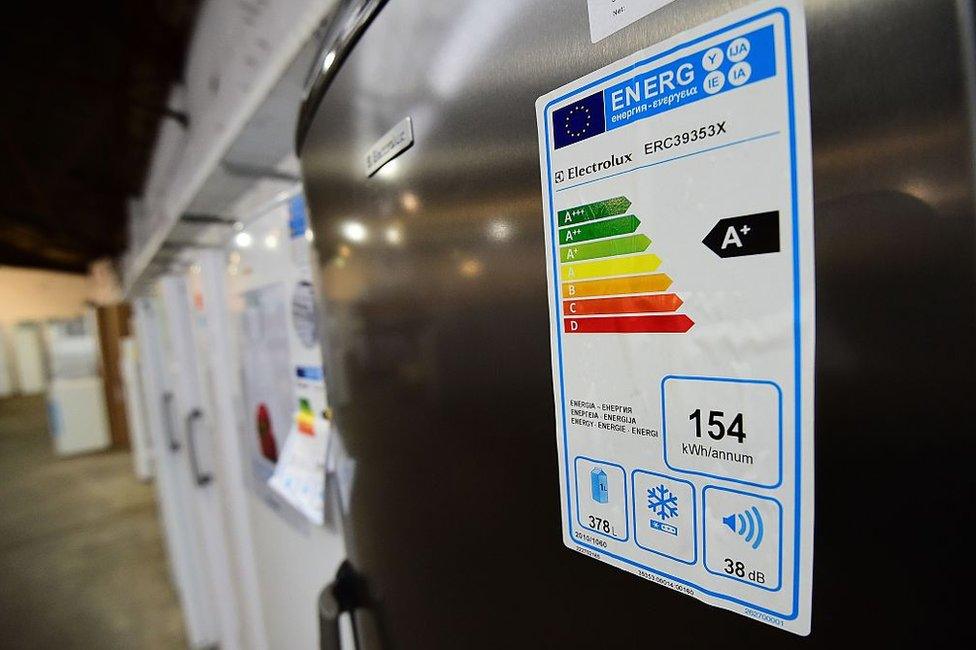
New fridges and freezers sold in Europe are given a mandatory energy efficiency rating
There's talk of giving tax incentives or VAT rebates on second-hand goods. There are also discussions about including incentives to alter designs, where the vast majority of a product's environmental impact can be determined.
Critically, experts say a better definition of what actually constitutes waste is badly needed.
For example, when aluminium cables used to carry electricity around the UK touch they ground, they are then classified as waste products, and there are significant bureaucratic hurdles before they can be used to carry electricity again.
Mr Molho from the Aldersgate group says he would welcome the introduction of what are termed "resource efficiency" criteria.
"Right now there are eco design standards which tell you how energy efficient your TV or washing machine should be," he explains.
"We think these products should have minimum 'resource efficiency' criteria telling you that this washing machine will last longer, will be easier to repair and easier to dismantle at the end of its life.
"The EU has announced an eco-design working plan that commits over time to resource efficiency, so they are committing to do it, so although we are Brexiting, I struggle to see how we cannot tune in to that market."
Follow Matt on Twitter @mattmcgrathbbc, external.
- Published19 October 2018
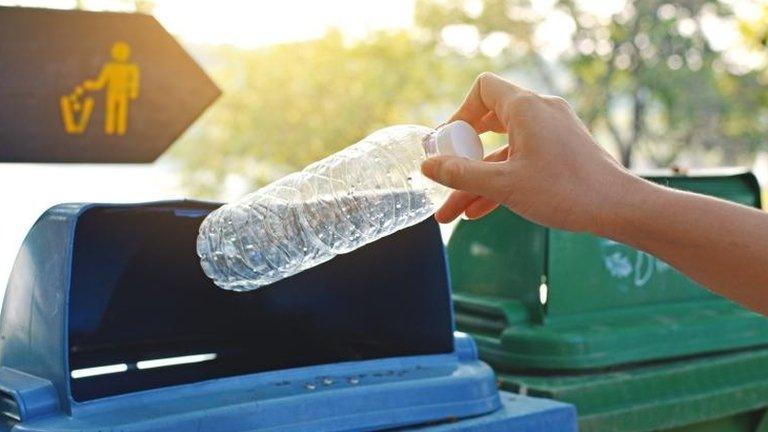
- Published18 December 2018
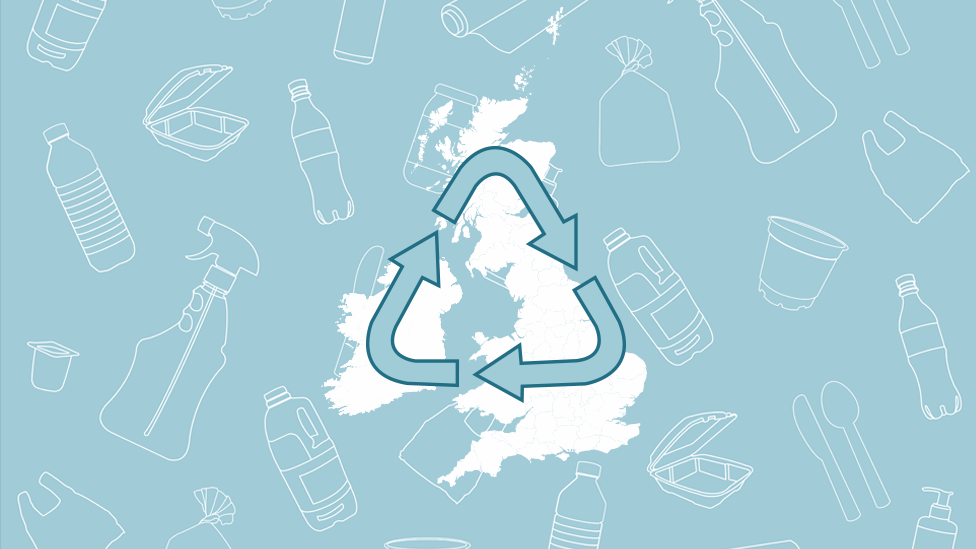
- Published23 July 2018
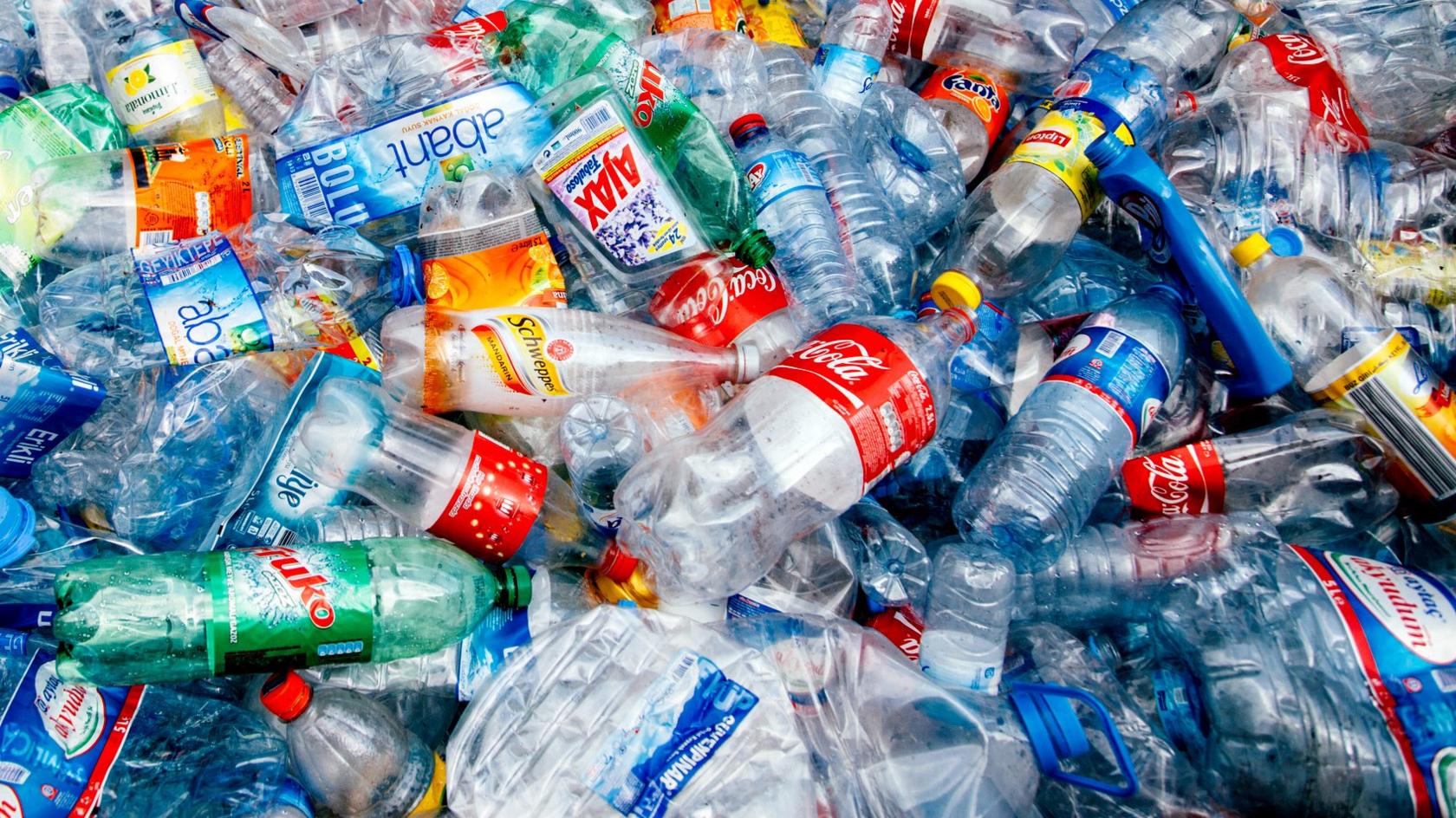
- Published6 March 2018
